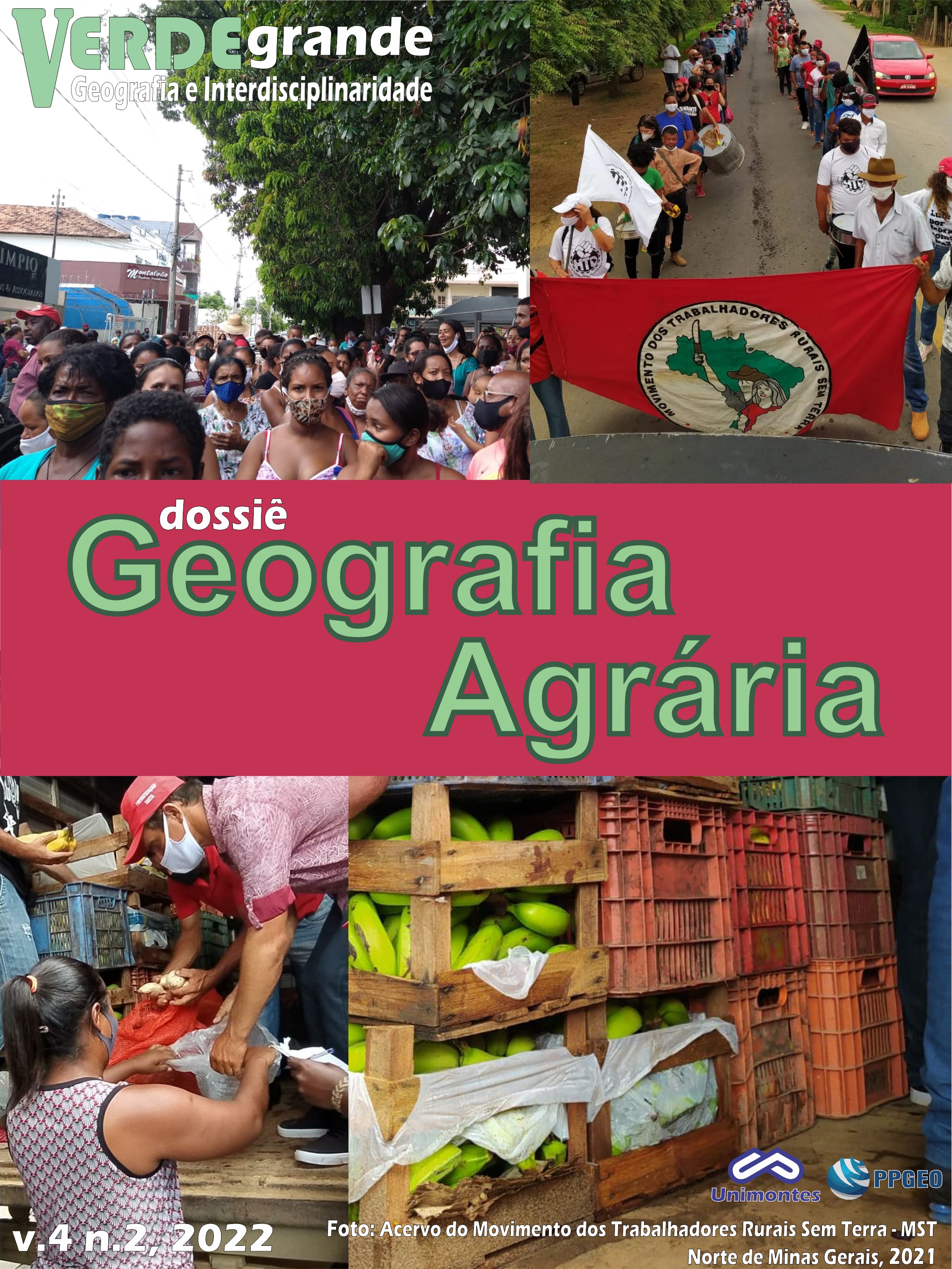"THE DIVERSE CARTOGRAPHIES AND THEIR REPRESENTATIONS: TERRITORIAL CONFLICTS IN THE NORTH OF MINAS GERAIS"
DOI:
10.46551/rvg2675239520222331338Keywords:
Territories. Conflicts. Cartographic Representations.Abstract
Abstract
We present a course entitled "The Diverse Cartographies and Their Representations: Territorial Conflicts in the North of Minas Gerais", to the 16th Teaching, Research, Extension and Management Forum/Unimontes with the justification of expanding the debate and dissemination of research. Based on the territorial conflicts in the North of Minas Gerais, the natives populations (indigenous) as well as quilombola populations, traditional communities (gerazeiros, caatingueiros, ilheiros, vazanteiros and veredeiros) and settlers of social movements, recognize their expressions and social representations. Environmentally, socially, politically, and legally, identity is affirmed through its representations. Materially and immaterially, communication and cartographic language address and recognize socially representative elements. The mapping of conflicts is indispensable for the development and organization of the processes of territorial relations in the area. The populations map their realities with proposals for resolutions and socio-spatial and sustainable empowerment. As a problem, we propose to know if, with the use of different cartographies, it is possible to minimize and recognize the confrontation of socio-spatial conflicts(?). As an objective, to recognize the diverse cartographies and their representations in the territorial conflicts in the north of Minas Gerais. The approach is driven and given in presenting the representations of automapping and participatory cartographies. Methodologically the course is presented with theoretical content; textual examples of various cartographic modalities; practice with a silent map and landscape images; debate and bibliographic references. The course results had a scope of overcoming beyond the geographical context, since it directly reached scholars from the Social Sciences/Anthropology, Law, Geography and Mathematics courses.
Keywords: Territories. Conflicts. Cartographic Representations.
Downloads
References
ACSELRAD, Henri. (Orgs.) Cartografias Sociais e Territórios. Rio de Janeiro: IPPUER/UFRJ, 2008.
ACSELRAD, Henri. (Orgs.) Cartografia social e dinâmicas territoriais: marcos para o debate. Rio de Janeiro: IPPUER/UFRJ, 2010.
BARTHES, Roland. Elementos de Semiologia. 19ª Ed. São Paulo: Cultrix, 2014.
JOLIVEAU, Thierry. O lugar do mapa nas abordagens participativas. In: ACSELRAD, Henri. (Orgs.) Cartografias Sociais e Territórios. Rio de Janeiro: IPPUER/UFRJ, 2008. p. 45-70.
HARLEY, « Mapas, saber e poder », Confins [Online], 5 | 2009, posto online em 24 avril 2009. Disponível em: URL: http://confins.revues.org/index5724.html
LIMA, Elias Lopes de. Encruzilhadas geográficas: notas sobre a compreensão do sujeito na teoria social crítica. 1ª Ed. Rio de Janeiro: Consequência, 2014.
MERLEAU-PONTY, Maurice. Fenomenologia da Percepção. São Paulo: Martins Fontes, 1999.
SANTOS, Boaventura de Sousa. Para uma revolução democrática da Justiça. 3ª edição. São Paulo: Cortez, 2011.
SERPA, Angelo. Por uma Geografia dos Espaços Vividos: Geografia e Fenomenologia. São Paulo: Contexto, 2019.
Downloads
Published
How to Cite
Issue
Section
License
Copyright (c) 2022 Cássio Alexandre Silva, Uakyrê Pankararu Braz, Joyce Nayara Wanderley Correia, Karine Siqueira Camilo Silva, Wesley Martins de Almeida

This work is licensed under a Creative Commons Attribution-NonCommercial-NoDerivatives 4.0 International License.
You are free to:
Share — copy and redistribute the material in any medium or format
The licensor cannot revoke these freedoms as long as you follow the license terms.
Under the following terms:
Attribution — You must give appropriate credit, provide a link to the license, and indicate if changes were made. You may do so in any reasonable manner, but not in any way that suggests the licensor endorses you or your use.
NonCommercial — You may not use the material for commercial purposes.
NoDerivatives — If you remix, transform, or build upon the material, you may not distribute the modified material.
No additional restrictions — You may not apply legal terms or technological measures that legally restrict others from doing anything the license permits.


















 Esta obra está licenciada com
Esta obra está licenciada com 